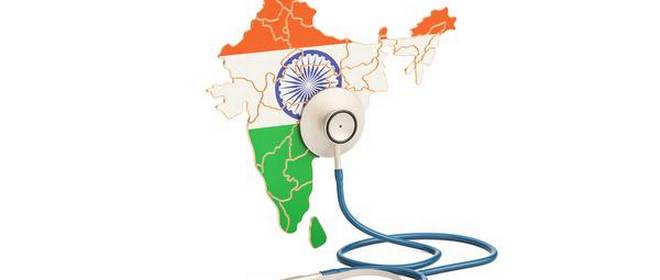
By AJIT YADAV
There is an urgent need to devise a non-profit, financially sustainable model for delivering quality healthcare
We need to explore whether creating a monetary eco-system funded from a wider set of goods and services consumed in the health sector is possible. It should meet the challenges of equitable generation, distribution and consumption of resources such that it becomes, over a period of time, substantially independent of governmental allocation but yet integrated in to the economy. Unfortunately there aren’t any existing models which could be cut-pasted to achieve this. Some systems are predominantly insurance driven but leave large sections of people under covered as in the US. Others such as the NHS in the UK are funded from taxes. In Nordic countries the system is almost exclusively publicly funded through taxation with a long standing commitment by the state to build and own components of the health system.
In India, health is an allocation economy which means it is static and a sort of largesse. A percentage of the GDP is allocated, consumed and renewed annually. It does not have any self- sustaining mechanism and in monetary terms no special purpose vehicles have ever been created to make it so. There is also no easy method for consumers to increase this allocation through their elected representatives. It is generally believed in the health care fraternity that allocations do not reflect the seriousness and multi-faceted dimensions of the malaise they seek to treat.
The health of a nation cannot be totally independent of its economy. The relationships between health delivery mechanisms and the government’s fiscal policies are well established. Put simply, increased monetary input improves the health of communities exponentially to a point.
However, budgetary constraints coupled with apathy have created dysfunctional gaps in health systems development affecting the health of entire generations.
Clearly, medical care givers, bureaucrats and health economists need to develop cross-competencies to bring a new vocabulary into popular economics. Lack of profit, benchmark of the traditional economy cannot be used to justify why goods and services cannot be provided. Healthcare was not made universal at independence because of high costs and today despite the economy having multiplied many times over it is still so. There seems to be a ‘belief deficit’.
Non-proft model
The health economy should not be guided by high profits but sustainability in health policy execution. Change in governments should not lead to dilution or abolition of commitments made by an earlier regime. Thailand has demonstrated how Universal Health Care became integral amidst continuous political turmoil because of relentless policing of health policy commitments.
A health system such as the one proposed should not be expected to dabble with unknown economic risk. An independent Health Bank could find and fund models of sustainable delivery that can be scaled up. Cataract care is an example where many indigenous facilities have delivered outstanding scalable models. It is this kind of conventional care which is currently deemed unaffordable because only so much can be done with a fixed ‘allocation’. By having an independent Health Bank models that work locally, regionally, nationally and deliver evidence based, economically viable solutions can be fast tracked.
Despite recent promises of Ayushman Bharat there are reasons why money for health care will stagnate in the near future. It’s not that our GDP needs to improve further or health services need to become cheaper. So many determinants of community and individual health have been tested and established that seeking another optimum inflection point in cost blatantly reflects lack of intent. It is a question of putting heads and hearts together to deliver.
The writer is a consultant orthopedician at Gleneagles Global Health City, Chennai
Source: Business Line

Leave a Reply